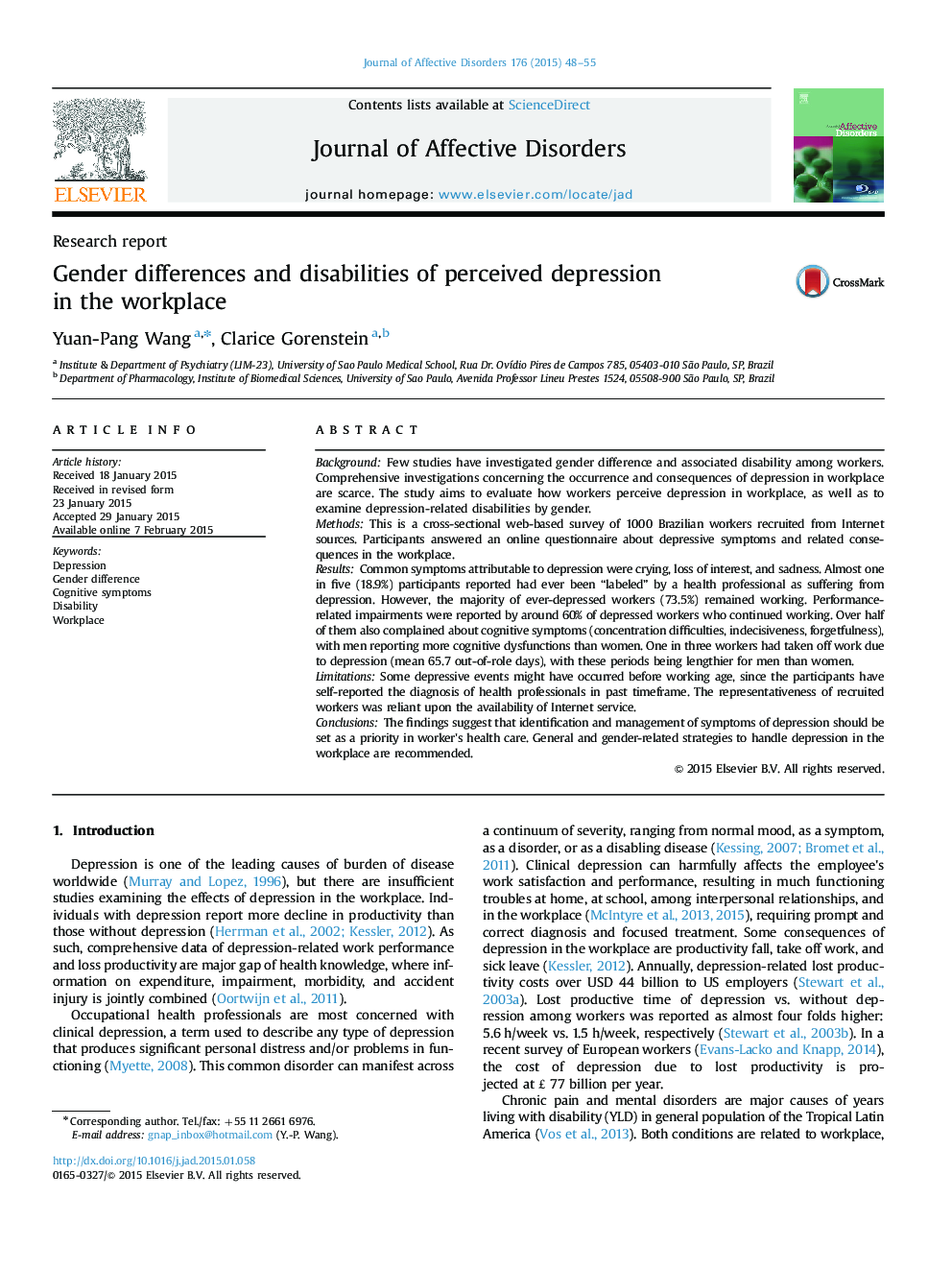| Article ID | Journal | Published Year | Pages | File Type |
|---|---|---|---|---|
| 4185949 | Journal of Affective Disorders | 2015 | 8 Pages |
BackgroundFew studies have investigated gender difference and associated disability among workers. Comprehensive investigations concerning the occurrence and consequences of depression in workplace are scarce. The study aims to evaluate how workers perceive depression in workplace, as well as to examine depression-related disabilities by gender.MethodsThis is a cross-sectional web-based survey of 1000 Brazilian workers recruited from Internet sources. Participants answered an online questionnaire about depressive symptoms and related consequences in the workplace.ResultsCommon symptoms attributable to depression were crying, loss of interest, and sadness. Almost one in five (18.9%) participants reported had ever been “labeled” by a health professional as suffering from depression. However, the majority of ever-depressed workers (73.5%) remained working. Performance-related impairments were reported by around 60% of depressed workers who continued working. Over half of them also complained about cognitive symptoms (concentration difficulties, indecisiveness, forgetfulness), with men reporting more cognitive dysfunctions than women. One in three workers had taken off work due to depression (mean 65.7 out-of-role days), with these periods being lengthier for men than women.LimitationsSome depressive events might have occurred before working age, since the participants have self-reported the diagnosis of health professionals in past timeframe. The representativeness of recruited workers was reliant upon the availability of Internet service.ConclusionsThe findings suggest that identification and management of symptoms of depression should be set as a priority in worker׳s health care. General and gender-related strategies to handle depression in the workplace are recommended.
